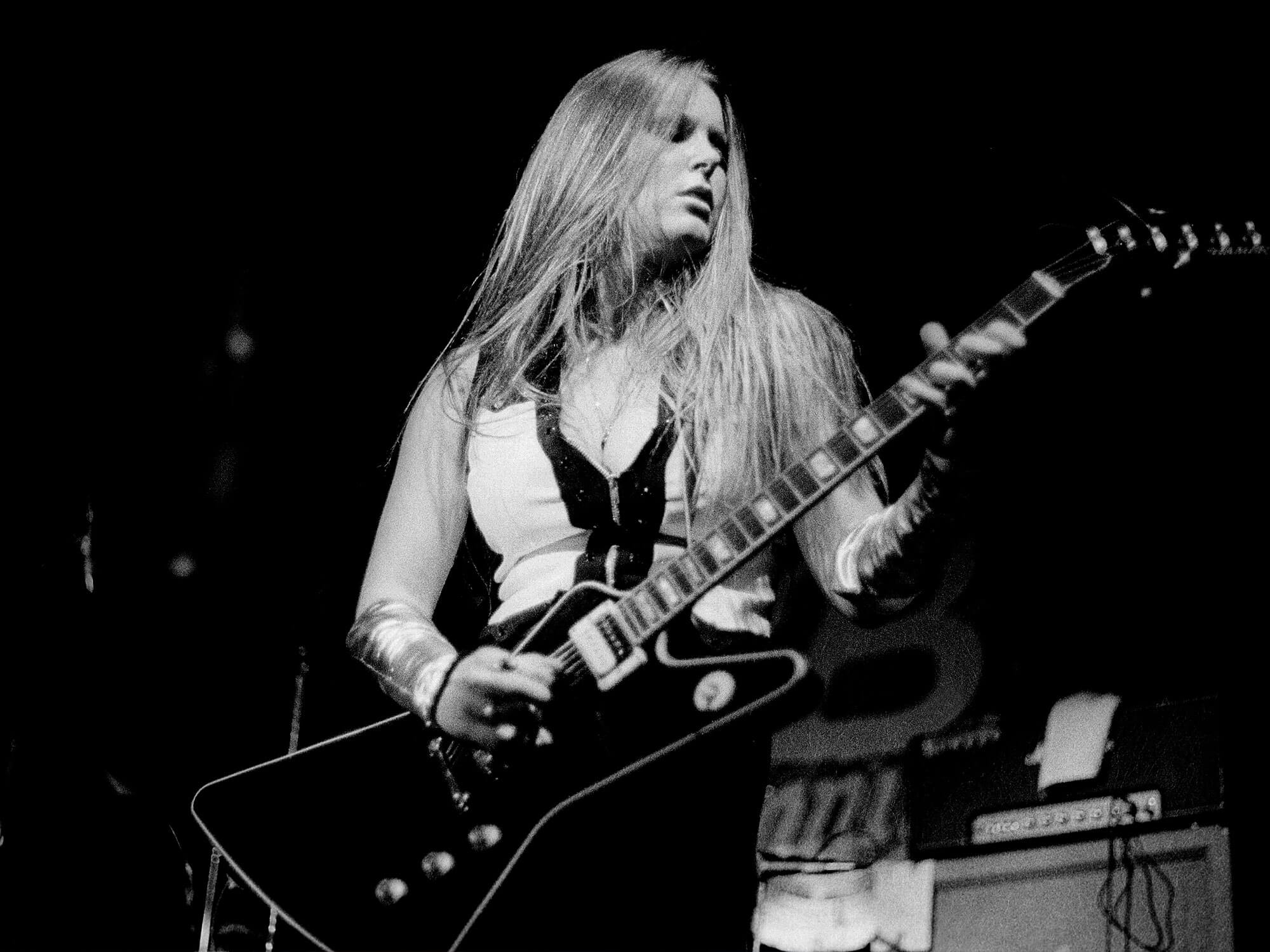“The fact that they thought about a female in their band, I thought was pretty cool”: Lita Ford explains how she almost became Led Zeppelin’s bassist
“I thought, ‘He’s got to be joking,’ because John Paul Jones is God on bass, as far as I’m concerned.”

Credit: Paul Natkin/Getty Images
Lita Ford has reminisced upon the time she was almost roped into playing bass for Led Zeppelin, even though it wasn’t her primary instrument with The Runaways.
Ford was eyed up to fill the possibly-vacant bass position after John Paul Jones contemplated quitting in the early ’70s in order to spend more time with his family.
At the time that Jimmy Page and Robert Plant was looking for someone new to take up the mantle, Ford was only 17 and playing guitar with the Joan Jett-led Runaways. Rumours of her almost joining the band have circulated ever since.
In a forthcoming interview with Guitar World, Ford sheds light on what really happened, recalling that the unexpected link-up almost happened after Page and Plant came to watch The Runaways at The Starwood Nightclub.
“Jimmy Page and Robert Plant came to see the show, and The Runaways were quite the novelty, being teenage girls that could rip it up, kick-ass, and rock the house,” Ford says. “The places were always packed with fans, and so, Jimmy Page and Robert Plant came to the show.
“Our manager at the time, Kim Fowley, said, ‘Okay girls, gather ’round and get a picture with Robert Plant and Jimmy Page,’” she goes on. “And, of course, I was scooched in there like, ‘Oh yeah, great! I love them!’ I grew up listening to them and was still growing up; actually, I was only 17.”
The pair then approached Ford directly and offered her the gig. “Robert Plant said, ‘We’re looking to replace our bass player, John Paul Jones,’ and I thought, ‘I’m not hearing this. I refuse to believe that this is really coming out of his mouth,’” Ford continues. “And I thought, ‘He’s got to be joking,’ because John Paul Jones is God on bass, as far as I’m concerned.
“But that’s what he said. And I walked away just thinking, ‘Oh, that was nice. That was nice of him to look at me like that,’ because, in those days, a lot of people didn’t look at us as musicians because we were female, and we were young.
“They never took us seriously as musicians. For me, guitar playing was always my main priority; I didn’t really care about much else. I just wanted to play guitar.”
Initially, Ford accepted the offer but was held back by her admiration of Jones. In her 2016 memoir, Living Like a Runaway, Ford wrote: “I didn’t even try. I love John Paul Jones. He’s one of my favourite bass players. I couldn’t imagine myself replacing him, but the fact that they thought about a female in their band, I thought was pretty cool.”
In the end, Jones never left the band and before long, they’d begun work on their 1975 LP Physical Graffiti.
